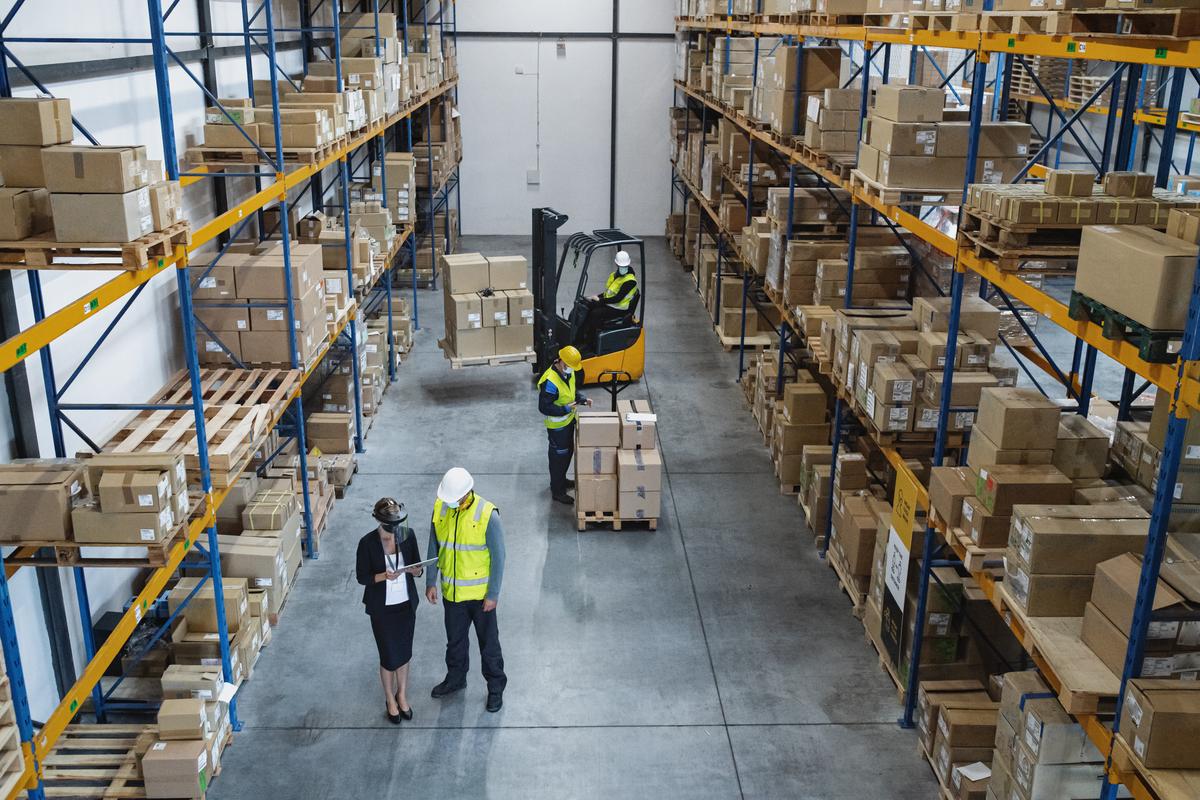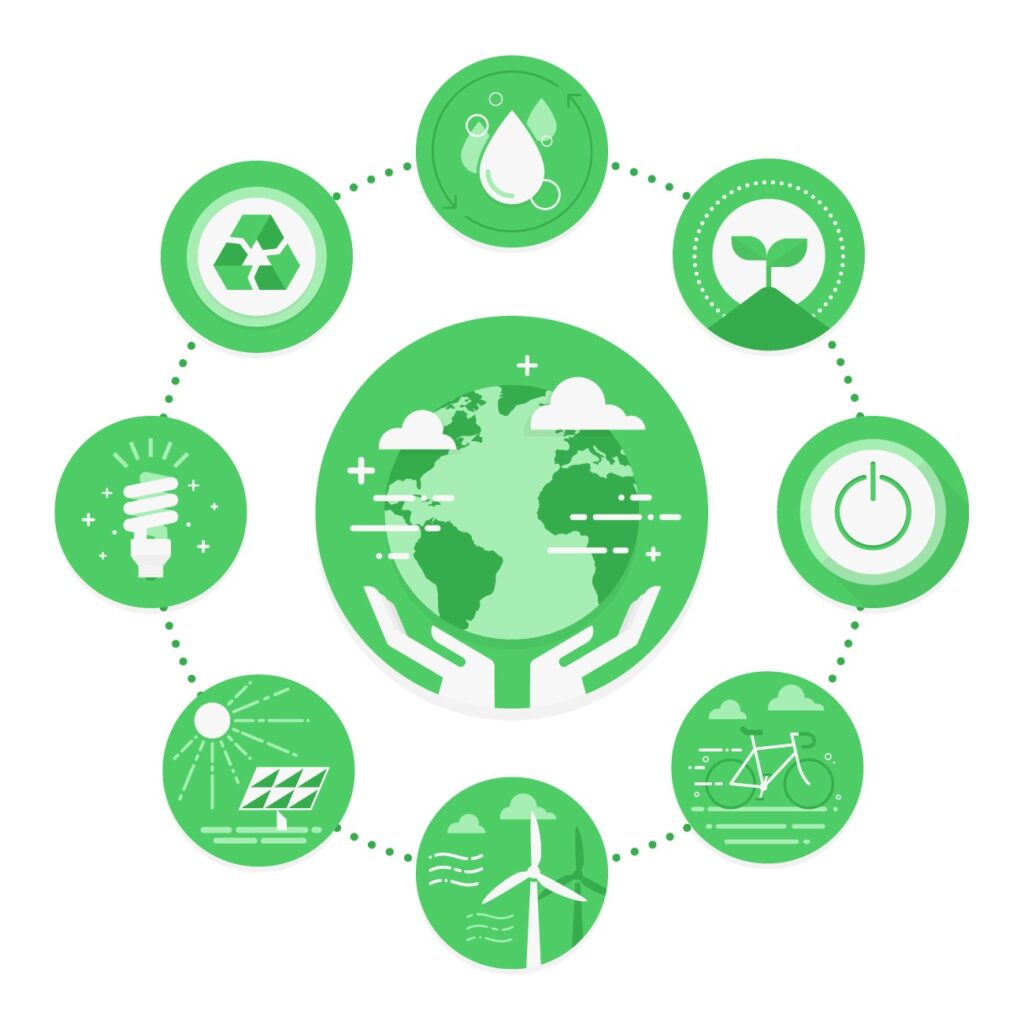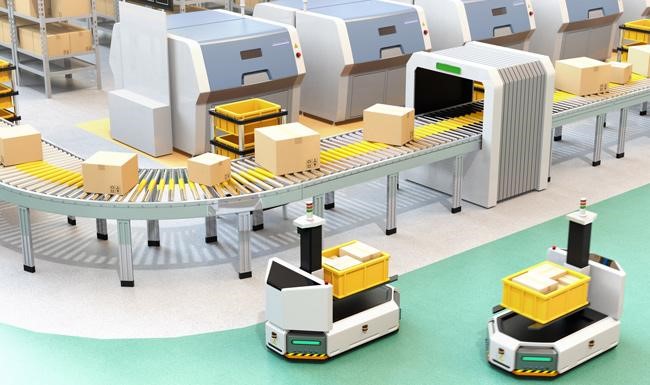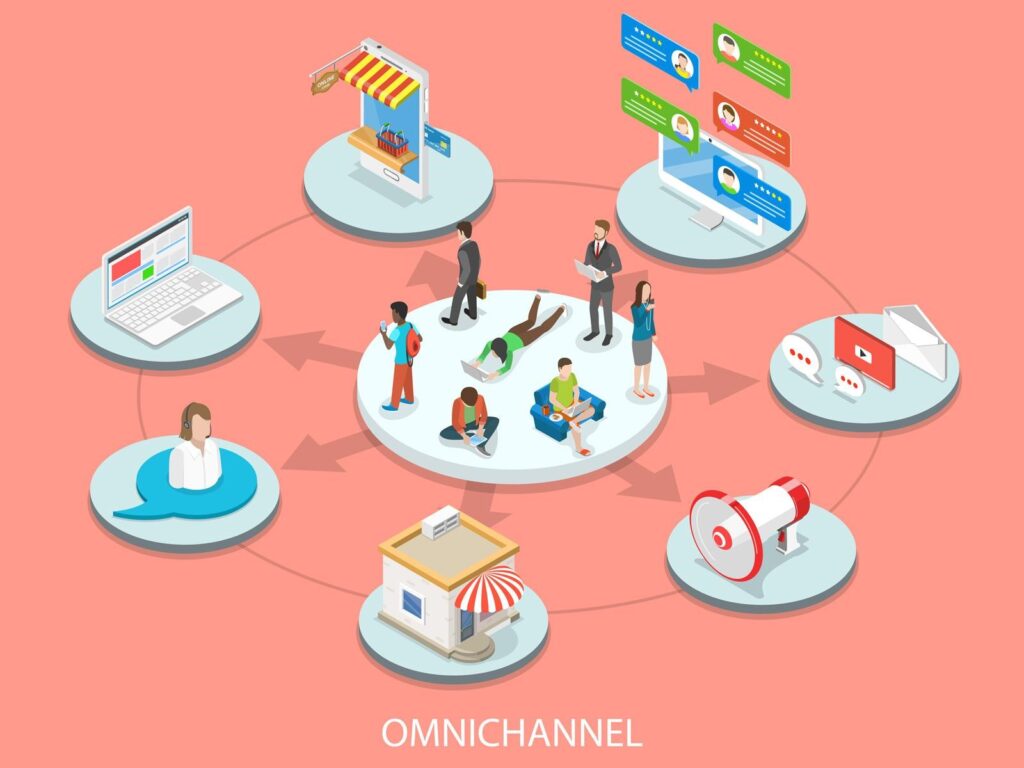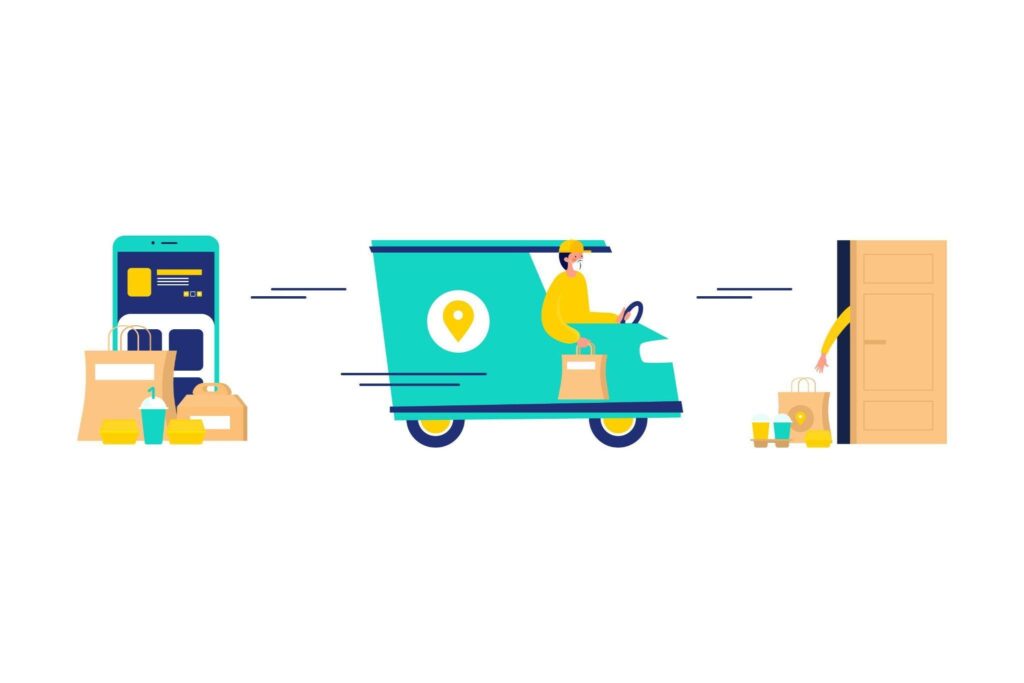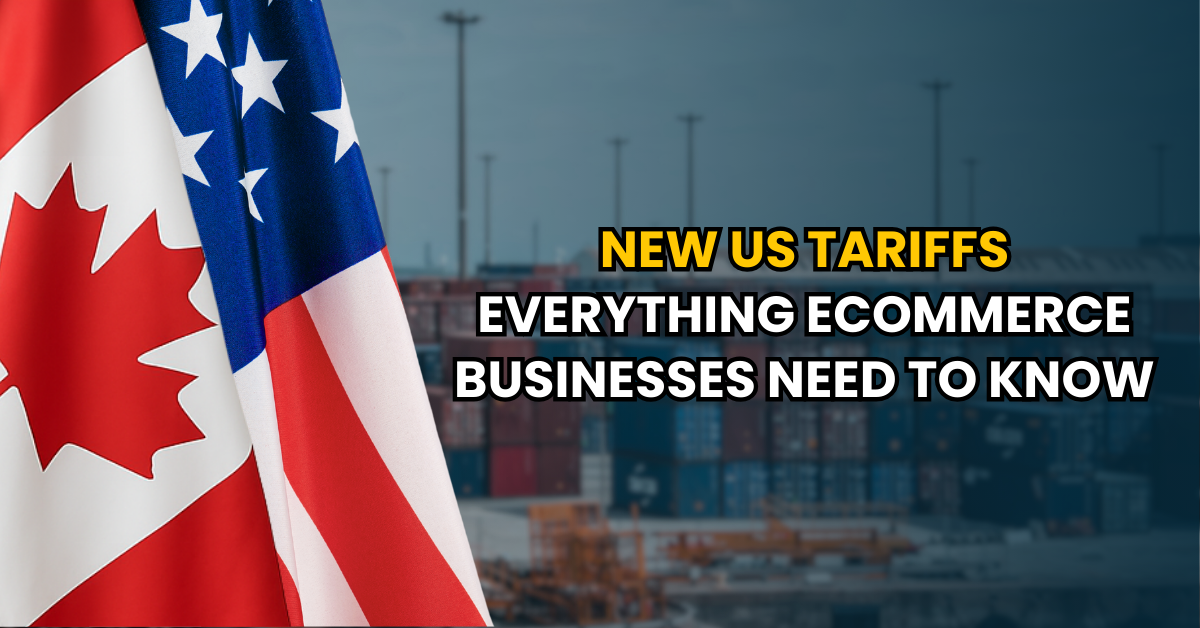Top Trends in Logistics and Fulfillment – 2023
Buckle up, businesses! With substantial advancements around the globe, the logistics and fulfillment landscape for businesses is undergoing a remarkable transformation. New technologies, changing consumer expectations, and global events have paved the way for a host of exciting trends that are shaping the industry.
In the ever-evolving era, businesses must keep pace with the latest trends to stay competitive. The year 2023 brings with it a host of transformative trends that are reshaping the industry. From advanced technologies to sustainability initiatives, these trends offer businesses the opportunity to optimize their supply chains, improve operational efficiency, and meet customer demands. In this blog, we will explore the top trends in logistics and fulfillment that businesses should be aware of and leverage.
Sustainable Logistics
A recent study by the World Economic Forum found that 86% of consumers are willing to pay more for sustainable products and services. Additionally, 72% of consumers believe that businesses have a responsibility to address sustainability issues. In response to this growing demand, businesses are increasingly implementing sustainable logistics initiatives.
Sustainable logistics is no longer just a moral obligation; it has become a key driver of success for businesses. By prioritizing sustainability in logistics and fulfillment operations, you can achieve cost savings, enhance your brand reputation, comply with regulations, meet customer demands, build a resilient supply chain, and foster innovation and collaboration opportunities.
Embracing sustainable practices is not only environmentally responsible but also strategically advantageous for businesses in the evolving landscape of logistics and fulfillment. Adopting sustainable practices can lead to significant cost savings. For example, using alternative fuels and electric vehicles for transportation reduces reliance on fossil fuels and lowers fuel costs in the long run.
Also, in today’s environmentally conscious world, consumers are increasingly drawn to businesses that prioritize sustainability. By implementing eco-friendly practices, you can enhance your brand reputation and attract a larger customer base. In addition, sustainability initiatives create a positive image, showing that you are committed to reducing the environmental impact hence making it a win-win situation for both you and the consumers.
And not just this, embracing sustainable logistics fosters innovation and collaboration opportunities. Companies that actively seek sustainable solutions often engage in partnerships with technology providers, transportation companies, and other stakeholders to develop innovative and eco-friendly logistics solutions. Collaboration within the industry promotes knowledge sharing and the adoption of best practices, further enhancing sustainable efforts.
Adopting Blockchain Technology for Enhanced Transparency
Are you ready to embrace the future? Then you must know about Blockchain Technology!
Imagine a digital ledger, transparent and immutable, where every transaction is securely recorded. That’s blockchain—a technology that’s turning heads and raising eyebrows in the business realm. But what’s the hassle all about? Well, think of it as a trust-building wizard, sprinkling its magic on the e-commerce landscape.
Adopting blockchain technology for enhanced transparency in logistics and fulfillment can bring significant benefits to e-commerce businesses. It offers supply chain visibility, ensuring transparency and accountability throughout the entire supply chain. The decentralized and cryptographic nature of blockchain provides robust security, protecting sensitive information and critical documentation. Streamlined documentation through smart contracts reduces paperwork errors and enhances communication between stakeholders.
Blockchain enables efficient inventory management with real-time and accurate visibility, optimizing stock levels and improving fulfillment processes. Trusted supplier relationships can be established by verifying authenticity and reliability through blockchain records. Customer confidence is enhanced through transparency and traceability of orders.
Blockchain also aids in compliance with regulations by maintaining auditable transaction records. By adopting blockchain, You can improve operational efficiency, build trust, comply with regulations, and provide better customer experiences in the logistics and fulfillment industry.
Advanced Automation and Robotics Technologies
By streamlining repetitive and labor-intensive tasks, advanced automation and robotics technologies increase efficiency and productivity, allowing you to fulfill orders more quickly, reduce errors, and optimize resource utilization. They also contribute to improved warehouse management by enabling efficient storage and retrieval of inventory, ensuring accurate inventory management through tasks like counting and replenishment.
Automation and robotics facilitate enhanced order fulfillment through autonomous navigation, picking, and transport, as well as seamless sorting, packaging, and labeling of orders, leading to faster and more accurate fulfillment processes. The scalability and flexibility of these technologies allow you to adapt to varying demand volumes, reconfigure operations, and maintain smooth logistics and fulfillment even during peak periods.
Worker safety and well-being are prioritized as robots handle physically demanding tasks, reducing the risk of injuries for human workers and allowing them to focus on more complex activities. The data generated by automation and robotics systems can be leveraged for data-driven decision-making, enabling you to identify bottlenecks, optimize processes, and improve overall operational efficiency.
Ultimately, the adoption of advanced automation and robotics provides fulfillment centers with a competitive advantage in the logistics and fulfillment industry, allowing them to offer faster order fulfillment, improve customer satisfaction, and establish a reputation for efficiency and reliability, positioning them as leaders in the evolving logistics landscape.
Artificial Intelligence and Data Analytics
A survey conducted by McKinsey & Company revealed that organizations utilizing AI in their operations have witnessed a 120% increase in their operating margin. Moreover, a study by Harvard Business Review indicated that businesses leveraging data analytics are five times more likely to make faster and better-informed decisions.
Hence, it is safe to say, AI and data analytics are revolutionizing the face of businesses. These technologies enable accurate demand forecasting, optimize inventory levels, and ensure timely fulfillment. By analyzing historical and real-time data, 3PL’s can optimize route planning, reducing transportation costs and delivery times.
Warehouse management and inventory optimization are enhanced through AI algorithms that determine the most efficient product placement and improve order-picking processes. Predictive maintenance helps minimize downtime and maintenance costs by identifying potential equipment failures in advance. AI-powered chatbots and virtual assistants enhance customer service by providing personalized support, while data analytics offer insights into customer preferences.
AI and data analytics also contribute to risk management and security by detecting potential threats and disruptions. Continuous improvement is facilitated through performance data analysis, allowing you to drive operational excellence and enhance customer satisfaction. Overall, AI and data analytics brings numerous advantages, including operational efficiency, cost savings, and competitiveness, to businesses in the logistics and fulfillment sector.
Omni-Channel Fulfillment
Imagine you operate an eCommerce store that specializes in selling shoes. A customer visits your website and explores your wide selection of footwear. They browse through various styles, colors, and sizes and eventually find the perfect pair that catches their eye. However, they have a concern about the fit and want to try them on before committing to the purchase.
Luckily, your business offers Omni-Channel Fulfillment, a service that seamlessly blends online and in-store experiences to cater to your customer’s needs and preferences. With this solution, your customers can have a personalized shopping concierge experience, enjoying the convenience and flexibility to shop on their own terms.
When the customer selects the Omni-Channel Fulfillment option, they have the opportunity to visit the nearest store to try on the shoes in person. This way, they can ensure the fit is just right and evaluate the comfort and style before making a final decision.
Inventory Management is a critical aspect of logistics and fulfillment operations businesses. It plays a vital role in providing a seamless and consistent customer experience across multiple channels, including online platforms, physical stores, and mobile apps. By integrating inventory management systems, you can optimize inventory levels and ensure that the right products are available at the right locations, minimizing fulfillment delays and maximizing sales opportunities. Intelligent order routing algorithms help allocate orders to the most suitable fulfillment locations, considering factors like inventory availability, proximity, and capacity.
Real-time inventory visibility enables you to track and manage inventory effectively, implementing strategies like ship-from-store to reduce shipping time and costs. Omni-channel fulfillment also offers scalability and adaptability, allowing you to adjust your strategies and channels to meet evolving customer preferences.
Overall, adopting omnichannel fulfillment strategies empowers businesses to enhance customer satisfaction, improve operational efficiency, and stay competitive in the dynamic retail industry.
Enhanced Last-mile Delivery
Last mile delivery is the final stretch of the delivery process, where your customer’s package travels from a distribution center to your doorstep. It’s like the grand finale, ensuring that your customer’s order completes its journey and reaches your customer with a friendly knock on your door.
By optimizing last-mile delivery, businesses can ensure faster, more reliable, and more convenient deliveries. An efficient last-mile delivery system reduces transit times and minimizes the chances of delayed or missed deliveries, which leads to happier customers. It enables you to offer flexible delivery options, such as same-day or next-day delivery, which are increasingly in demand. By meeting these expectations, you can build trust and loyalty with your customers.
Additionally, enhanced last-mile delivery can help you tackle the challenges posed by the growing e-commerce industry. With the rise of online shopping, the volume of home deliveries has skyrocketed. By implementing advanced tracking systems, route optimization algorithms, and leveraging technologies like GPS and real-time data, you can improve delivery efficiency, reduce costs, and enhance the overall customer experience.
Moreover, you can take advantage of innovative solutions like delivery drones or autonomous vehicles for last-mile delivery, which further streamline operations and offer novel customer experiences. These technological advancements not only boost efficiency but also create a sense of excitement and novelty, giving you a competitive edge in the market. By focusing on optimizing this crucial stage of the delivery process, you can provide faster, more reliable, and more convenient deliveries, resulting in higher customer satisfaction and ultimately driving your business growth.
Internet of Things (IoT)
The incredible impact of the Internet of Things (IoT) on the logistics and fulfillment business feels like witnessing a digital transformation on steroids! With IoT, businesses have undergone a massive revolution, and boy, it’s been a game-changer.
Think about it closely, a world where every step of the logistics process is interconnected and monitored in real time. It’s like having a personal assistant, guiding you through the supply chain maze. From tracking inventory levels to monitoring shipment conditions and optimizing routes, IoT has given businesses an unprecedented level of visibility and control. It’s like having a team of superheroes behind the scenes, ensuring everything runs smoothly and efficiently.
Remember the headache of inventory management? Well, IoT has put an end to that. Smart sensors and connected devices are here to save the day. They can monitor inventory levels in real-time, automatically triggering reorders when supplies run low.
No more guesswork or manual stock checks. It’s like having a personal assistant who keeps an eye on your inventory 24/7, making sure you never run out of stock or tie up your cash in excess inventory.
Talk about convenience! And let’s not forget the impact on the customer experience. IoT has transformed it entirely. Imagine receiving real-time updates on the status of your shipment, from the moment it leaves the warehouse to its final destination.
With IoT-enabled tracking and tracing, businesses can provide customers with accurate delivery estimates, reduce lost shipments, and enhance overall satisfaction. It’s like having a magic crystal ball that keeps you informed every step of the way. Who wouldn’t love that?
So, there you have it—the remarkable IoT revolution in logistics and fulfillment. It’s all about interconnectedness, automation, efficiency, and an enhanced customer experience. With IoT as a guiding force, businesses can unlock new levels of productivity, reduce costs, and stay ahead of the competition.
So, buckle up and embrace the IoT wave because the logistics and fulfillment landscape will never be the same again! It’s a digital transformation you don’t want to miss.
Having gained a deeper comprehension of the trajectory in which the logistics and fulfillment is advancing, the question arises:
What lies ahead for your business? How can you ensure that you seize the opportunities presented by these trends and harness them to your advantage?
Don’t worry, we have you covered!
eCom logistics is a leading Canadian 3PL providing end to end logistics solutions to North American businesses since 2017. Headquartered at North york, Ontario, equipped with more than 50,000 sq feet of warehousing space and the latest fulfillment technology, we have proved to be a trusted partner for thousands of businesses for all their warehousing and fulfillment needs. We also offer complimentary logistics services such as inventory management, same day and next day delivery, Canadian, US and international shipping options, returns management, LTL freight and much more.
Book a free consultation today! Click Here

